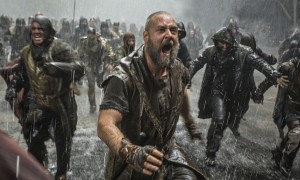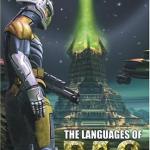[Here’s another blurb for our upcoming book Little Gems: Better ‘Notes’ on Screenwriting and Storytelling.
These are the non-negotiables of proficiency in storytelling for the screen. It isn’t an exhaustive list of screenwriting skills but really just the essentials. I almost included a section on “Layering.” ( I think I need to add “Layering.” If you can do all of these things with competence (and, you know, “Layering”), you are ready for the minor leagues, at least.
1. A Honed Story Sense – Writers acquire the “family resemblance” of storytellers in the same way kids start to act like their parents. The talent for writing, of course, must be “in” a person the way kids share family genetic material. But starting to look and think and act and react like a storyteller comes from just hanging around other storytellers. If you intentionally and consistently dwell in the company of people telling tales, chances are their sensibilities will start to grow on you.
What we are saying is, READ! Read the stories that have lasted for centuries: the Greek myths and Aesop’s Fables. Read Homer and the best of the Greek dramas. Read The Arabian Knights and The Canterbury Tales, The Brothers Grimm and Shakespeare. And Shakespeare. Never stop reading Shakespeare. Read the classics of American and British literature and master one or more of the masters like Dickens, Hawthorne, Austen, Melville and the Brontes. Read the best of the moderns: Faulkner, Fitzgerald, O’Connor, Greene and Hemingway. And Shakespeare. Did we mention Shakespeare?
If you take on this company as your friends and mentors, it will form your inner story sense. You will begin to feel in your spirit when a plot point just isn’t high stakes enough. You will know in a way you might not be able to verbally articulate that that character would never make that choice. You will disdain characters that are superficial and lacking in quirky appeal.
There really is no other way to be a great storyteller than to read great stories.
2. Technical Formatting – A screenplay is a technical document very
much like an architectural blueprint. You can’t skip learning how to correctly write slug-lines anymore than an architect can skip how to draw electrical outlets in his dream house. And buying screenwriting software ISN’T learning formatting. A screenwriter needs to know the “Whys” of screenplay grammar. (I mean you. You know who you are.)
3. Economical, Vibrant Prose – Good use of language is a skill that all
writers require. In screenwriting, language and vocabulary skills are complicated by the need to be strictly concise. We call describing a location vividly in just a couple lines, “Mis En Scene.” I think they gave it a French name to indicate how exotic a skill it is. A competent screenwriter will know how to choose the one or two details that absolutely move a location out of “standard location,” and into “unique, cool place you haven’t really seen before.” A character’s visual style – and hopefully psychological/emotional subtext needs to be conveyed with just about the same line or two. With only 120 pages in which to tell a whole story, a writer needs to have exactly the right words at hand to set the tone and clearly delineate the action.
4. Visual imagery – In movies, pictures do the bulk of the work of the storytelling. The sound track absolutely matters and should powerfully complement what the audience is seeing, but the main information about character and story has to be told through how the character’s look and what they do. An essential skill for screen storytelling is finding the right choice for the character to make – something visual and provocative – such that the true stakes and the character psychology can be read right through it. There are several senses in which screenwriting can be said to be visual: in terms of arena, movement, composition, juxtaposition, and lyrical metaphor. Great screenwriting utilizes them all.
5. Character design – There is a genius to creating quirky, admirable
characters who are at the same time flawed and needy. They have to drive their own arc of transformation at the same time that they are fighting an inner battle with the darkness that just might overwhelm them. Beginning writers tend to make characters either too needy and pathetic, or invincible. Mastery here means creating someone who is real enough to be relatable, but better than the real enough to be entertaining.
6. Dramatic Structure – After figuring out what the plot of the story is going to be, the next biggest decision a writer makes is how to deliver that plot: linear? flashbacks? “eyes of a child”? other unreliable narrator? Etc. Probably nothing takes as much thought from a screenwriter as structure. This is because the needs of the audience are pretty much fixed and there isn’t a lot of flexibility in serving those needs. They need to be hooked in the first ten minutes. They need rising suspense and major reversals in the first hour or they start to feel bored. They need a pulse made of steady beats and then they need a cathartic purging peak. And, as Aristotle notes in The Poetics, it all has to happen before they have to get up and go to the bathroom!
Structure often provides the smartest spectacle in a movie, but only because the writer has broken her brain finding the cleverest way to deliver the plot. People learn structure by playing with it. A lot. A writer who doesn’t know how to play, is not going to master screen storytelling.
7. A Sense of the Moment – When we think about movies that we love and that haunt us, the recollection is always tied to key moments in the story. In Titanic it was the scene on the bow. You know the one? Of course, you do. In Raiders of the Lost Ark it was Indi shooting the Arabian swordsman. Remember? In The Godfather – well there are many, but who doesn’t remember the finding of the horse head in bed, and the don playing with orange peels with his grandson just before keeling over, and, finally, the baptism in which Michael becomes the Godfather in two senses.
A great movie is a series of great moments. The story leads in and out of them. They deliver action or character psychology with a richness that separates story from anything real life has to offer. A good writer needs a keen sense of the moments in a story, how to set them up, how long to stay in them, and how to transition the story to the new height that the moment has taken us.











